After having breast cancer at 34 and undergoing treatment, Heather Cramer learned she was cancer-free. She dedicated herself to exercising regularly and eating healthy so she could enjoy life. But last year, she learned she had breast cancer again. This time it was triple negative, an aggressive form of cancer, and it had spread throughout her body, meaning it was metastatic.
“It’s scary,” the 41-year-old from Maria Stein, Ohio, told TODAY. “It’s a tough road. I know they’re trying to say breast cancer is more of a chronic disease but it’s hard to look at it like that.”
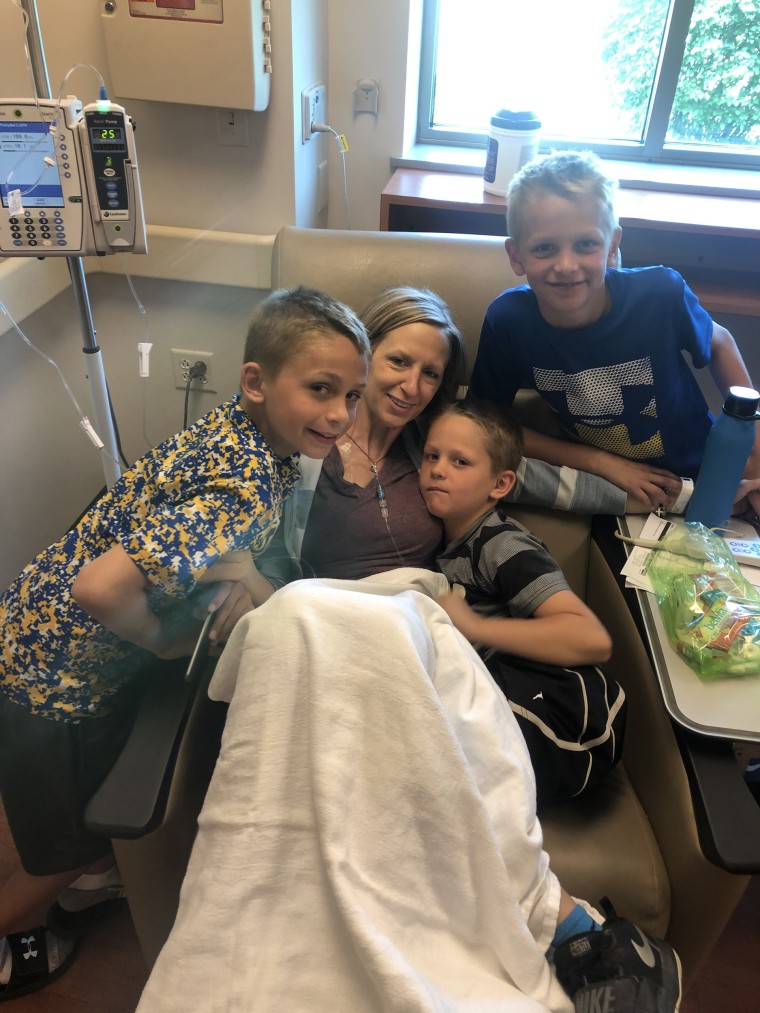
The mother of three, wife and school treasurer makes the most of each day and is sharing her story to encourage others to visit the doctor if anything seems amiss.
“Make sure you’re getting checked,” she said. “If people feel like they’ve got an issue go to the doctor right away.”
Breastfeeding reveals something wrong
After finishing breastfeeding her youngest son, Cramer, then 34, performed a breast self-exam and noticed her left breast didn’t feel right. When she went to her follow-up in October, she mentioned it to the doctor and asked for a mammogram. Her mother had a benign cyst removed from her breast when she was 34 and Cramer figured she was experiencing the same thing.
“He did find a spot that he was concerned about so he wanted them to check out that area on a mammogram,” she said. “It was like a 50% chance it was cancer.”
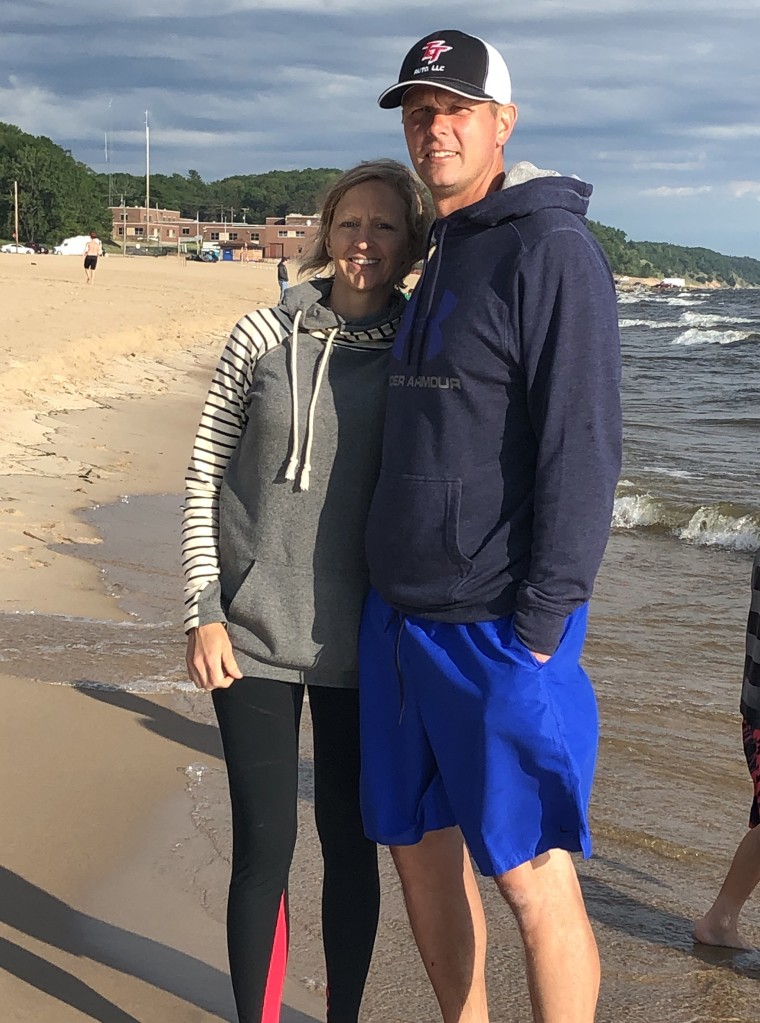
Further testing revealed that she had invasive ductal carcinoma, a breast cancer that was estrogen and progesterone receptor positive, HER2 negative.
“I didn’t really have any other risk factors. I didn’t have any of the genes for breast cancer,” Cramer said. “I wasn’t overweight. I nursed all my three children for a year. I exercised. I started having children before the age of 30. I didn’t have my first period before I was 11 … I was pretty surprised I did have cancer.”
When she had her mastectomy in January 2014, they found the cancer had spread to her lymph nodes. She went through 16 weeks of chemotherapy, a bilateral mastectomy, reconstructive surgery and radiation. After treatment, scans didn’t show any cancer and she enjoyed life without the invasive treatments and too frequent doctors’ visits.
“2015 to 2018 were good years, where I didn’t really have anything going on,” she said.
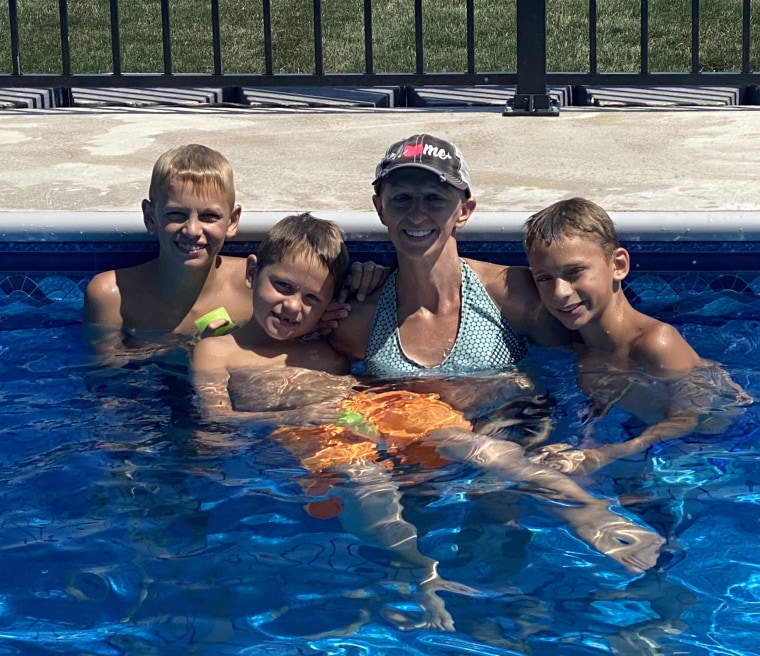
She enjoyed spending time with her sons, now 13, 10 and 8, watching their sporting events or swimming with them. While she felt healthy for the most part, she was working with a physical therapist for issues with the irradiated tissue, tissue that was injured by radiotherapy treatment. The therapist noticed two bumps on her skin, near an incision close to her armpit, in late 2018.
“They were kind of like mosquito bites,” she explained. “I knew I was going to the doctor in February so I just had them look at them then.”
The doctor wasn’t worried so she resumed normal life. By April though, it appeared the bumps were abnormal. They weren't going away, so she followed up with a different doctor.
“I started to freak out,” she said. “They did a second biopsy and after a couple of weeks of trying to figure out what was going on it came back as triple negative breast cancer.”
When she had breast cancer at 34, 5% of it was triple negative and doctors used treatment protocols for the larger percent, the estrogen and progesterone receptor cancer. The triple negative cancer returned and spread to her lungs, lymph nodes and brain.
“I was considered metastatic, stage 4,” she said.
Breast cancer in younger women is increasing
While most most breast cancers are found in women who are 50 years or older, Dr. Sagar Sardesai, Cramer’s attending oncologist, said more younger patients are being diagnosed with it. According to the Centers for Disease Control and Prevention, about 11% of all new cases of breast cancer in the U.S. are found in women younger than 45 years of age.
“We are noticing an upward trend in younger women with new breast cancer diagnosis and so far the reason for that is not entirely clear,” the medical oncologist at the Ohio State University Comprehensive Cancer Center told TODAY. “It has been associated with lifestyle factors that have to do with estrogen exposure.”
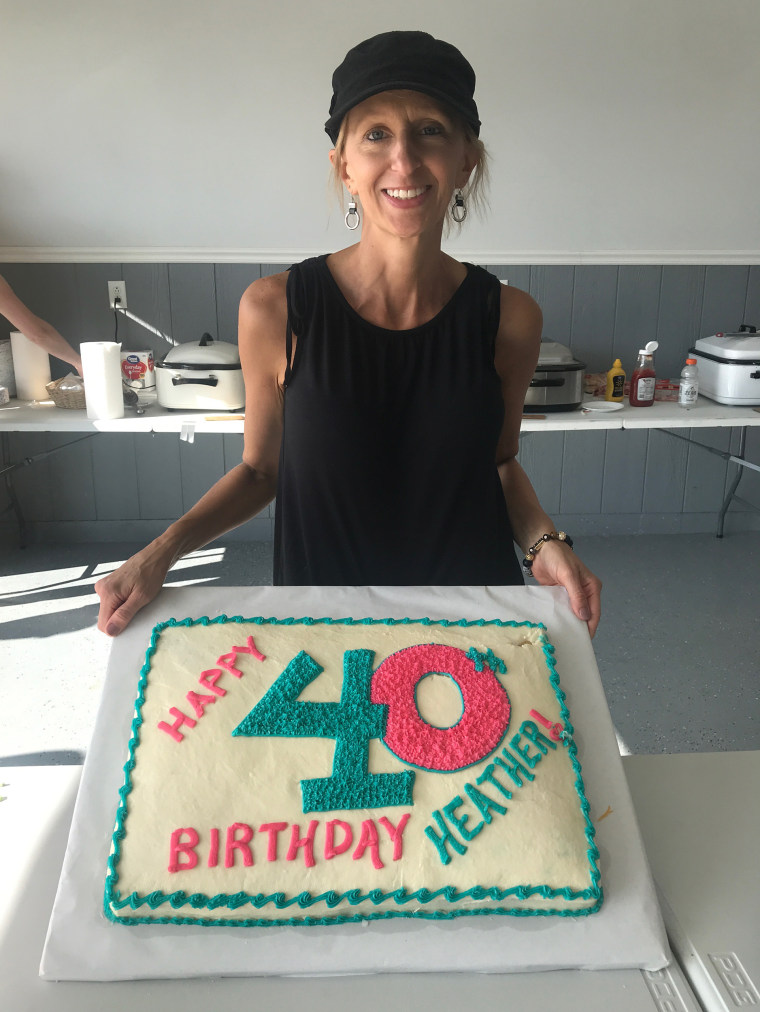
Women having fewer children, having children after 30, starting menstruation before 11 and entering menopause later all could contribute to why doctors are seeing increased breast cancer diagnoses in younger women, Sardesai noted.
“With all that we are seeing that the estrogen exposure in a woman’s life has significantly changed and could be associated with the increased risk,” he said. “Other factors that seem to be on the rise are related to genetics and family history.”
While Cramer said she did not have any these risk factors, she was proactive about doing breast examinations and talking to a doctor when she noticed something felt off. Sardesai said that women who observe differences in their breast should talk to their doctor immediately.
“I would say it is a very high priority,” Sardesai said. “It’s very important for the doctors to listen to their patients and not ignore their symptoms just because they’re younger.”
When Cramer’s cancer returned it looked like mosquito bites and Sardesai said doctors also need to remember breast cancer doesn’t always look one way.
“Breast cancer can present in many ways. It’s not always just a lump. It can be a nipple discharge, soreness in the breast, skin changes,” he said. “If it's a young woman who presents with any of these symptoms … they should not be dismissed.”
Life with metastatic breast cancer
Every day, Cramer wakes and does a spiritual devotion before showering for work.
“It’s like, ‘OK. It’s time to go. I’ve got to get through this day for my kids and my husband,'” she said. “I do it for them.”
She still exercises as much as she can and attends all of her sons’ events. Some days, work feels tough, but she really loves her job.
“I don’t want to wait to die. I think I would go crazy not still living my life,” she said.
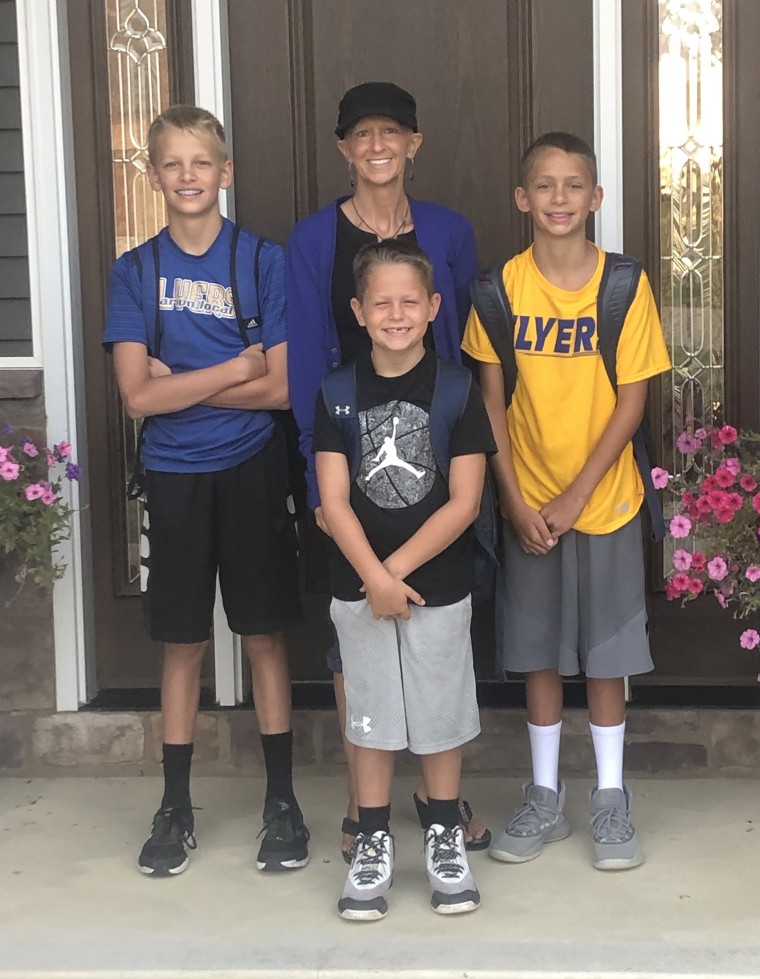
Having a strong support system and a deep faith certainly help her face chemotherapy and various radiation surgeries for the tumors in her brain. Also, crying in the closet when needed doesn’t hurt.
“I have my crying fits,” she said. “I think that people with cancer should know that, too, you have a right to scream and cry and get it all out. I can’t hold it in all the time.”
She hopes others understand that while having incurable cancer is hard, it’s not always bleak.
“There’s hope,” she said. “If you surround yourself with people that love you and build you up and keep you positive and pray for you and help you stay connected spiritually … that helps.”

